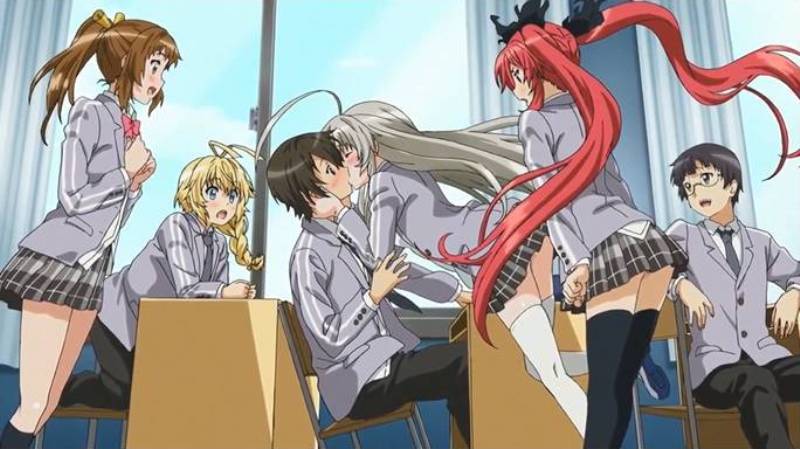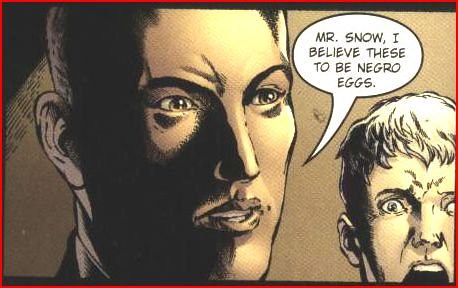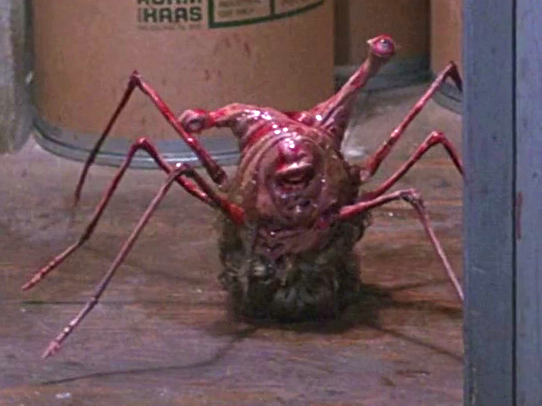Cosmic horror dwells in the unknown, unknowable, unexplained, and inexplicable. It is a profound meditation on the meaninglessness of human existence and endeavor. You must set aside the notions of a Captain Kirk, going boldly where no man has gone before. Instead, you are presented with an invitation to gaze into the abyss, the acceptance of which constitutes a sick obsession and your likely demise. Mystery RP stories in the general case already suffer from difficulties with collaborative storytelling, and this problem is only exacerbated by the inclusion of cosmic horror as a theme.
In a mundane mystery, before the session even begins the truth is to some extent set in stone and the MC is by definition the only one who knows the whole story. At least PC investigators of a mundane mystery can solve a case, both because the truth behind a mundane mystery can be realized through the application of human reasoning and efforts, and because a mundane mystery has an underlying truth comprehensible to human minds. PC investigators of a cosmic mystery can take initiative, hunt for clues, apply reason, and come up with no answers at all save for having their brains turned inside-out by an errant Colour Out Of Space.
Player disempowerment is practically required if we are meant to meaningfully engage with the theme "we are specks of dust on the face of an incomprehensible being for whom the name 'God' lacks any meaning." This world, in which curiosity always kills the cat, is patently unsuitable for collaborative storytelling in the manner of a party of PCs riffing with their MC. How can one engage with the proposition that a group of players can share narrative control in a story where there is no meaningful truth to uncover, where the truth would be incomprehensible to the protagonists if it existed, and the protagonists' efforts must necessarily have no lasting consequences? It's a non-starter and you will reach one of several failure modes: you end up on the worst kind of MC railroad, in which players feel the victimization and disillusionment of playing in a mad, hostile universe and promptly quit because that's no fucking fun at all, you end up with farcical shit on the level of Old Man Henderson, or you tell a story with Mythos trappings but none of the substance because you've forced the Mythos into a D&D-shaped box. "You enter the sorcerer's lair and he sics four cultists and a Byakhee on you. Roll initiative."
The idea that you could expect a sorcerer to even have a Byakhee is another glaring problem with gamifying the Mythos. If you the player can bring any kind of expectations regarding the species of extradimensional beasties a mad sorcerer might have in his arsenal to the table, you have already lost. Lovecraft did not re-use many of his monsters or even bother to name them exactly because their purpose is to represent the unrecognizable and unknown. They are not scary creatures in the manner of The Wolfman or The Creature From The Black Lagoon in that they are funny-looking and present a physical threat, rather they are objects of fear because they suggest that there are countless other, equally mind-twisting blasphemies or worse teeming in the Outer Night that could drop in at any time on an inscrutable whim. Now we play Arkham Horror and pull a Formless Spawn from the monster cup and say, "oh yes, the Formless Spawn, two Toughness and Physical Immunity; I'd best use the enchanted knife." BZZZT. YOU LOSE.
And yet, you must have the bestiary. You must, if you are to play a game of dice and statistics, have target numbers and modifiers. You must know that a Byakhee is half the strength of the Star Spawn, but a quarter that of a Haunter of the Dark, or how could you roll for damage? So not only is cosmic horror as subject matter unsuitable for collaborative storytelling, but it is unsuitable to be represented categorically in the way it must be if we are to have a game at all. And if there's no collaboration in the story, and not even the formality of having some dice to roll to pretend to have agency, well... just read the MC's short story, then?
The unavoidable necessity of the bestiary leads in to a general cargo cultism of Lovecraftian places, monsters, deities, and planes. There is only so much weird shit that can happen in Arkham, Massachusetts before one would begin to suspect that it is somehow special, which is total anathema to the whole cosmic horror thing again. If Earth is nothing special, and it must not be, why is it that dozens of Outer Gods, Elder Gods, Great Old Ones (oh shit there's that bestiary categorization at work again) and others hang out on Earth and fuck around with its residents with such frequency?

Oh, right, because Yasaka's first time has been promised to them. I guess that works.
And why specifically do they cluster around New England? Lovecraft himself fell victim to this to a certain extent, but I will give him a free pass because the dude was writing what he knew and also did not foresee the existence of people who would try to use his oeuvre as a campaign setting for an RPG. It's one thing to lace your stories with references to others, which is very cool and quite necessary when you are making the world's first collaborative fiction shared universe, but it doesn't in any way require you to sit down with a map and a ruler charting out whether the flight path of the Haunter of the Dark on its way to eat Robert Blake would have crossed the Whateley farm. However, if you are trying to build a campaign setting, you do have to engage with the question "why does all this weird stuff happen in such a small area?" Either everywhere on Earth is exactly this weird, in which case human civilization could not exist, or else Lovecraft County is in some way especially attractive to the Mythos, in which case you have lost the thread.
So, you can still have a roleplaying session in a context in which the rules are made up, the points don't matter, and Cthulhu rises or not based on the arbitrary rightness of the stars. It becomes a character-driven exercise in which the players emote at each other about the horrible things to which the MC exposes their characters until everyone breaks for pizza or goes home. Even then, you're still committing a sin against genre emulation, because for the most part cosmic horror stories are about lone weirdos whose strange passions lead them to social isolation and a bad end. The idea of a band of friends or colleagues trooping off together in search of the unknown is more Captain Kirk than Creepy Howie. The social isolation of the protagonist is vital; the crushing despair brought on by exposure to that which lurks beyond the walls cannot and must not be understood by those who have not experienced it for themselves. The soap-bubble everyday world must shun the one who has become aware as one who no longer fits in, as must the one who has become aware shun the world because they now understand its triviality.
Some Lovecraft stories do feature groups of investigators, but usually this is so that they can be picked off one by one and leave one last madman survivor to pass on the tale (cf. The Call of Cthulhu, At the Mountains of Madness). The Dunwich Horror is a notable exception, since you do have three professors getting together to not only oppose a critter of the Mythos but hex it to death and make it out pretty much unscathed. However, despite its popularity, this is also pretty much the least cosmically horrific that the Mythos can get. It typifies the kind of story you can actually tell in a standard RPG context with the Mythos backdrop, namely: a bunch of people get together, assemble clues, and fight a monster. Yog-Sothoth communicates with humans, makes deals with them, has identifiable wants, and is ultimately thwarted.
The sort of fiction modeled on Dunwich just does not interest me enough to make or remake an entire RPG for the purpose of facilitating more of it. I'm utterly nonplussed by the idea that anyone should want intentionally to assemble a cargo cult of Lovecraft's places, monsters, and deities and leave the actual thematic content at the door. The point of this rant, and what I'm asking, is where is my blindness? I feel I must be overlooking something. I'd dearly like to assemble a better Mythos RPG, but if I can't find a way to use it to tell the kinds of Mythos stories that really grab my imagination, I might as well stick with BRP.



